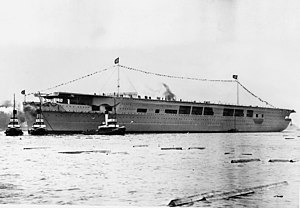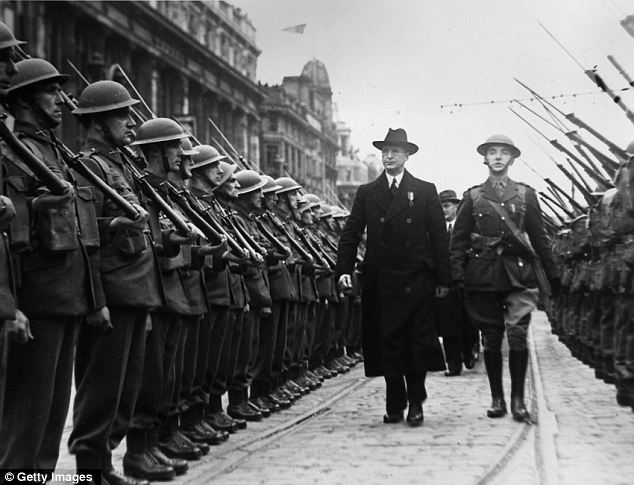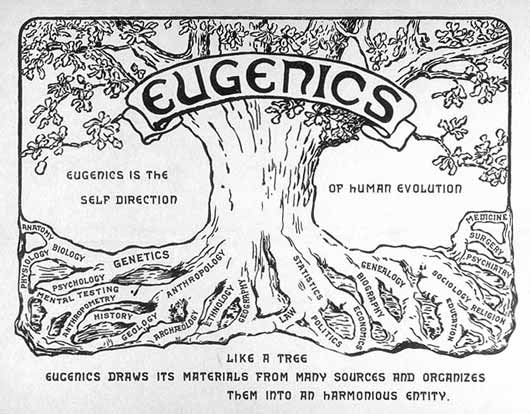Chapter 84: Pact of Steel
Graf Zeppelin begins sea trials
[FONT="]
Letter from Joseph P. Walshe to John Leydon and R.C. Ferguson (Dublin) (215/211) (Secret) [/FONT]
[FONT="]Dublin, 12 November 1940[/FONT]
[FONT="]Dear Ferguson, Leydon,[/FONT]
[FONT="]I am sending you herewith copy of a minute which we have received from the Imperial Training and Development Board regarding an enquiry from the British Ministry of Supply as to the engineering capacity available in this country for the manufacture of shell cases and fuses.[/FONT]
[FONT="]As you know, we have from the beginning set ourselves the manufacture of armaments here for purposes of self-defence, and I think a number of tentative proposals by Irish firms who were thinking of engaging in this type of work have already been turned down due to standardisation difference. I am by no means sure that this preliminary feeler from the British Ministry of Supply is not an indication that they themselves anticipate that we might see no objection to the manufacture of shell cases and fuses here on grounds of policy.[/FONT]
[FONT="]We propose to ask the Board therefore to tell the British Ministry of Supply that he has ascertained that it is likely, with caveats, that engineering capacity would be available in this country for the manufacture of empty shell cases and fuses. I should be glad if you would let me know as soon as possible whether your Minister agrees.[/FONT]
[FONT="]Yours sincerely, [/FONT]
[FONT="]
[stamped] (SIGNED) J.P. Walsh[/FONT]
[FONT="]**************************************[/FONT]
[FONT="]....and by the close of the thirties the Fascist front of the Berlin-Rome Axis had begun to see significant gains from the signing of the Pact of Steel as they, or their proxies, saw significant gains at the expense of minor nations such as Abyssinia, or even moderate states such as seen in the fall of Czechoslovakia, first through the Sudetenland Crisis and then through the brief Axis-Czechoslovak war that ensued in the aftermath. All of which occurred as the Anglo-French alliance stood aside in seeming paralysis from the fear of restarting another Great War; it is most interesting that in the two closing years of the thirties Germany seemed intent on engaging in war with the Entente powers, 1938 in Czechoslovakia and then again in 1939 over the Danzig crisis, while the divided Commonwealth nations and France backed down from confrontation in both cases. Due to this failure to confront the growing fascist movement within Europe had seen the loss of several nations as well as the defeat of Republican Spain by its Nationalist enemies ensuring that France now found itself surrounded on three fronts by hostile powers even as the Empire of Japan allied itself with Berlin-Rome Axis, thereby placing the increasingly Entente allied Soviet Union with the prospect of a two-front war in any conflict.[/FONT]
[FONT="]These conflicts in the run up to the Second Great War, primarily in Spain and Czechoslovakia for the Germans and Italians, then Manchuria for the Japanese, saw the evolution of these powers military forces and doctrine from what had been a low ebb through the thirties to what would be the devastatingly modern military machine of the first years of the war. Indeed inspite of the weakness of the Anglo-French forces throughout the thirties the European Axis militaries, primarily the Germans, were only nascent in their development as shown by the performance of the Panzer forces in the Czech campaign versus the early war offensives, while the highly effective automatic rifles in the Sturmgewhr’40 and ’41 were only developed from the study of the various captured F/A(E) variants supplied to the Republic of Spain through the conflict by the Anglo-French. Unfortunately for the Entente nations these conflicts did not translate in a similar evolution in effectiveness in their own military forces, instead beginning a policy of first sluggish rearmament in the mid to late thirties, followed by increasingly frantic methods as the conflict neared, which merely bolstered base military numbers in the French and Commonwealth forces while failing to address the numerous command issues and obsolete doctrine without considering the difficulties caused by the rapid build up of the new units itself on their force structure. As such as the forties began and the positions of the two power blocs became increasingly antagonistic the Axis powers were somewhat ahead of their rivals in terms of military development and build-up inspite of being outnumbered in total personal numbers and material, as the disastrous performance shown by the Entente forces in the first months of the conflict would show; quite simply the Anglo-French and Soviet Entente militaries had geared themselves to [FONT="]re-fight[/FONT] the First Great War and the Manchurian War respectively while the Axis militaries had invested and geared themselves towards newer more aggressive doctrine and strategies having viewed these previous conflicts as failed templates not to be repeated.[/FONT]
[FONT="]An example of this situation would lie in the naval sphere between the preeminent Entente, and at the time global, fleet in the shape of the Royal Navy and its Commonwealth auxiliaries versus its Axis rivals, in overall numbers it significantly outweighed its Axis rivals combined but apart from its destroyer and submarine designs, and series of aircraft carriers, many of its in-service heavy warships in the cruiser to battleship range dated backed to the twenties or First Great War and had suffered a series of restrictions and cut backs throughout the thirties that had reduced the effectiveness of the fleet and overall crew morale throughout the fleet. Comparatively while smaller the Axis navies, mainly in the Kriegsmarine and Imperil Japanese Navy had begun their build-up in the late thirties and as such its heavy units as such were consequently more modern and unrestrained by the failed Naval Treaties; even the incomplete application of the Plan Z rearmament plan by the Kriegsmarine had left it fielding its first operational aircraft carrier, the Graf Zeppelin, in late 1940 with the second and last of the class managing to enter service shortly after the outbreak of the conflict along with the H-class battleship
Friedrich der Große and preceding Bismarck class battleships caused significant hardship for the larger Royal Navy Home Fleet throughout the war such as in the Norway campaign. And while the Regia Marina had not adopted a more conservative building programme failing to adequately utilise newer technologies such as radar and sonar in particular, it did possesses significant surface assets including six battleships refitted just prior to the outbreak in preparation for the expected Greek campaign, which would pressurise the Royal Navy and Marine Nationale early in the conflict throughout the Mediterranean. This of course was one of the great difficulties faced by the Entente navies who faced with powerful surface forces in widely dispersed operational zones found it difficult to bring its superior numbers to bear in any one combat theatre, with Italians in the Mediterranean, the Germans in the North Sea and Atlantic and the powerful Kido Butai in the Far East.......[/FONT]
[FONT="]**************************************[/FONT]
[FONT="]I am directed by the Minister for Defence to refer to your letter of the 16th instant with enclosure, relative to the desire of the British Air Council to establish a range for bombing and firing from the air on the North Eastern shore of Lough Foyle, and to state that, from the military point of view, there is no objection to the proposal which can adequately be advanced. [/FONT]
[FONT="]At the same time, the Minister feels strongly that on general principles and internal concerns, the establishment of the range is undesirable and that the Air Council should be discouraged to the greatest possible extent against putting the proposal into effect. Acceptance of perhaps Canadian or other Commonwealth forces would be acceptable if necessary.[/FONT]
[FONT="][signed] PEADAR MACMAHON
Rúnaidhe [/FONT]
[FONT="]*Handwritten with note[/FONT]
[FONT="]Jesus are they crazy or desperate? Don’t they know how the Air force feels about the RAF? The situation’s bad enough without a ‘friendly fire’ incident! Keep them away Joe. Take the Canadians if they press the issue. [/FONT]
[FONT="]**************************************[/FONT]
[/FONT][FONT="]
Committee of Heads of Departments[/FONT][FONT="].[/FONT]
[FONT="]It was decided that a Committee of Heads of Departments responsible to the Government, under the Chairmanship of the Taoiseach, should be established to act as a general planning, co-ordinating and supervising body, and to consider the measures which it is necessary to take in preparation for the eventuality of a European war; the Committee to consist of the Secretaries of the following Departments: [/FONT]
· [FONT="]Agriculture[/FONT]
· [FONT="]Defence[/FONT]
· [FONT="]External Affairs[/FONT]
· [FONT="]Finance[/FONT]
· [FONT="]Industry & Commerce[/FONT]
· [FONT="]Justice[/FONT]
· [FONT="]Taoiseach[/FONT]
[FONT="]An Bord Pleanla reactivation will also occur under the aegis of the Committee in the event of outbreak of hostilities. It was also decided that a legislation Committee should be set up to consider and draft, subject to the approval of the Government, whatever legislative measures may be necessary to deal with a war situation; this Committee to consist of representatives of the Attorney General's Department, the Department of External Affairs and the Department of Justice. [/FONT]
[FONT="]**************************************[/FONT]
[FONT="]Noel hopped down from the truck with rest of his squad and they began to diligently and swiftly unlimber the new Ordnance QF-25 pounder and assemble it into its fire position, the British made guns were recent acquisitions to replace the older Russian field guns previously in use by the Artillery Corps and the division’s inexperience with the weapons showed as their load time was sluggish. [/FONT]
[FONT="]Especially in comparison with their Canadian training partners who had the processes completed and in firing position while his own crew was only partially unlimbered and their accuracy was also poor, though the Canadian crews were hardly much better at least Noel noted as the gaggle of Senior Officers down from Dublin looked on them with unhappy scowls....[/FONT]
[FONT="]**************************************[/FONT]
[FONT="] Federov Atvomat (Eire Variant) is an Irish build version of the Russian build Federov Advomat automatic rifle used by the ITTL Irish Army (see earlier in TL) and sold as an export item. ITTL it inspires early adoption of the STG43/44 by the Germans after seeing the F/A(E)’s used in the (shorter) ITTL Spanish civil war.[/FONT]
[FONT="]Plan Z –[/FONT][FONT="] Is still not really implemented but morseo than OTL (due to less interaction with Soviet Union by Germany ITTL) with two ‘extra’ years of German and Italian rearmament, along with a weaker RN. So Kriegsmarine aircraft carriers! We’ll see if there any use later on.[/FONT]
[FONT="]Letters –[/FONT][FONT="] Altered versions of OTL documents about secret Irish diplomacy. With the North as part of the Kingdom ITTL the Foyle Plan (OTL) is a much, much, bigger issue than OTL.[/FONT]
[FONT="]War –[/FONT][FONT="] Are the Entente ready for a war in 1941? Hmmmmm

. The Axis seemingly are...

[/FONT]





